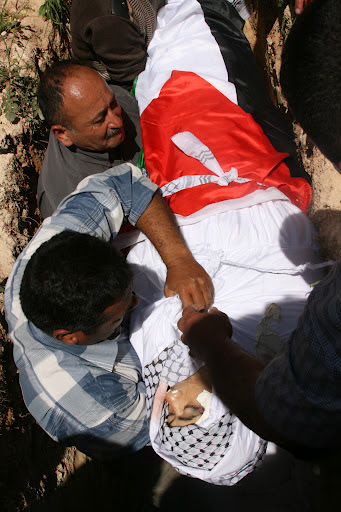Tag: Nablus
-
The Battle of Empty Stomachs: Khader Adnan highlights the consolation of solidarity
by Sylvia 24 April 2012 | International Solidarity Movement, West Bank On the 17th of April, Palestinian political prisoners launched a mass hunger strike against the Israeli Prison Service’s (IPS) dismissal of the Fourth Geneva Convention and basic international law. The call for action comes on Palestinian Prisoners Day after a wave of high-profile hunger…
-
Burin Youth Center targeted once again: 10 youth arrested in 200 soldier raid
by Lydia 21 April 2012 | International Solidarity Movement, West Bank In a quick and clean opperation, the Israeli Occupation Military managed to arrest 10 young men in two hours, forever altering the next few months or even the next years of their life in one swift swoop. At 2 AM on 18 April, around…
-
Fadi Abu Zeitoun, killed as settlers attacked farmers
by Rana H. 9 April 2012 | International Solidarity Movement, West Bank Israeli settlers attacked and chased a group of Palestinian farmers last Thursday, causing a tractor to flip over during the chase, causing the death of the Palestinian driver. On Thursday, April 5th, armed settlers from the illegal Israeli colony of Itamar attacked a…



